Registration figures of imported cars exceed the 3 million mark in South Korea
By the end of 2022, a total of more than three million imported vehicles were registered in South Korea, according to government data. This shows that more and more consumers are opting for foreign car brands instead of domestic manufacturers. According to figures from the Ministry of Land, Infrastructure and Transport, registrations of imported vehicles reached about 3.17 million, or 12 per cent of all 25.46 million vehicles registered in the country. The ministry further pointed out that in 2011, there were less than 600,000 vehicles registered by foreign manufacturers, but this number increased to 1 million in 2014 and over 2 million in 2018. Three German car brands account for seven out of 10 imported vehicles: Volkswagen Group Korea, BMW Group Korea and Mercedes-Benz Korea. Equipment and machinery from the automotive production sector require KCs certification in many cases. KCs certification was introduced to ensure basic safety in the design and manufacture of hazardous machinery and protective equipment in hazardous workplaces in Korea.
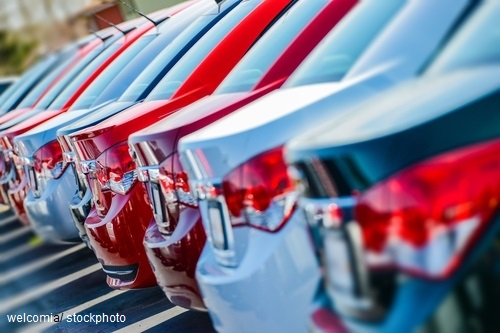
According to a report by the business portal “The Korea Bizwire”, this trend is continuing. In December 2022, for example, 24 per cent more imported new cars were sold than in the same period last year, despite the chip shortage. The number of newly registered vehicles from abroad was 29,640 units in last year’s December compared to 23,904 units in 2021, the Korean Association of Automobile Importers and Distributors reported in a release. The top three selling car models were the Mercedes-Benz E250 and E350 4MATIC and the BMW 520. Cars from Germany accounted for about 76 per cent of all new cars imported to Asia’s fourth-largest economy, the association said. The market share of all imported passenger cars was 20.85 per cent in November 2022, up from 15.35 per cent a year earlier.
The KCs certification was introduced to ensure basic safety in the design and manufacture of hazardous machinery and protective equipment in hazardous workplaces in Korea. The aim is to protect the health and safety of workers by preventing accidents. We offer certification services for all product areas, including KC certification for consumer products and especially electronics, KC-EMV certification for electronic products and KCs certification for machinery, as well as KCs Ex for explosion-proof products.
We are at your disposal for all questions regarding Korea certifications.
Feel free to contact us any time if you need assistance or have any questions regarding Korean certifications like KC, KC EMC, KCs, KCs for explosion safety products or KGS factory registration.
Tel. Europe: +49-69-271 37 69 261 Tel. US: +1 773 654-2673
Email: info@korea-certification.com
For more information you can download our free brochure “Korea Certification Made Easy – The Booklet“.
Pledges for foreign direct investment in South Korea hit new high in 2022
Direct investment from abroad in South Korea, known as “foreign direct investment” or “FDI” for short, reached a new high last year in 2022. As per data released by “Korea Bizwire” in early January 2023, the investment amount exceeded 30 billion US dollars for the first time. Foreign institutions and companies pledged investments of 30.35 billion US dollars, up 3.2 per cent year-on-year, according to the Ministry of Trade, Industry and Energy. The previous record of 29.51 billion US dollars was set in 2021. In particular, investments were noted in the textile and apparel, chemicals, metals and electronics industries. Products from these areas usually need KC certification to be approved for import and distribution in Korea.
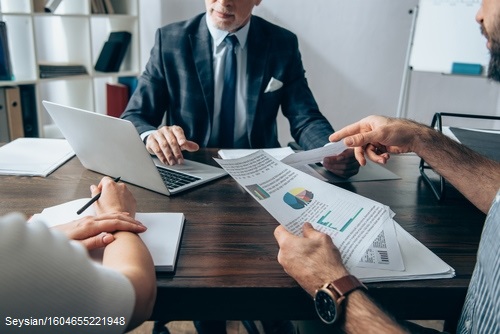
Contrary to the pledges, however, in 2022 actual foreign direct investment in South Korea fell 3.1 per cent year-on-year to US$18.03 billion. According to the data, the number of investment pledges increased by 12.1 per cent to 3,463 and actual investments executed rose by 12.4 per cent to 2,325. Broken down by industry, the manufacturing sector more than doubled the number of investment pledges to 12.48 billion US dollars, a new all-time high.
Looking at the countries of origin of foreign direct investment, the USA leads the way with 28.5 per cent. Here, an increase of 62.5 per cent to 8.69 billion US dollars was also recorded compared to the previous year. Investments from the EU decreased by 36.9 per cent to 8.07 billion US dollars, and investments from China and its territories were 31.6 per cent lower, bringing the total to 5.16 billion US dollars last year. Investments for the new establishment of companies increased by 23.4 per cent compared to the previous year to a new record value of 22.32 billion US dollars. In contrast, investments for company acquisitions and mergers fell by 28.8 per cent to 8.14 billion US dollars. A spokesperson for the Ministry of Trade, Industry and Energy said that the increase in FDI is expected to have a positive impact on employment and business investment in other related sectors. In addition, the government will continue its measures to deregulate and provide subsidies to foreign investors, the spokesperson said.
KCs certification was introduced in South Korea to ensure basic safety in the design and manufacture of hazardous machinery and protective equipment in hazardous workplaces in Korea. The aim is to protect the health and safety of workers by preventing accidents. We offer certification services for all product areas, including KC certification for consumer products and especially electronics, KC-EMC certification for electronic products and KCs certification for machinery, as well as KCs for explosion-proof products. We are at your disposal for all questions regarding Korea certifications.
Feel free to contact us any time if you need assistance or have any questions regarding Korean certifications like KC, KC EMC, KCs, KCs for explosion safety products or KGS factory registration.
Tel. Europe: +49-69-271 37 69 261 Tel. US: +1 773 654-2673
Email: info@korea-certification.com
For more information you can download our free brochure “Korea Certification Made Easy – The Booklet“.
Beginning of petrochemical project by Hyundai E&C
Hyundai Engineering & Construction and Hyundai Engineering have formally launched a project to construct the most extensive petrochemical facilities to date in Ulsan, South Korea, known as the “Shaheen Project.” S-Oil, a South Korean oil refiner, invested around 9.3 trillion won ($7 billion), the largest investment by Aramco, a Saudi Arabian state-owned oil and gas firm and S-Oil’s primary shareholder, in Korea. The facilities will manufacture high-density and linear low-density polyethylene on a large scale, including a steam cracker complex producing ethylene, a crucial raw material for petrochemical products. Explosion proof products from this branche need a KCs Mark for explosion safety products to import or market them in Korea.
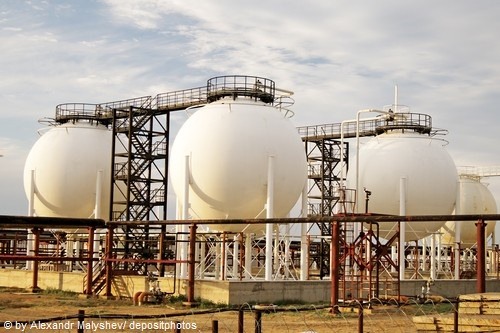
This project is expected to increase S-Oil’s petrochemical business share from 12% to 25%. The project will incorporate the thermal crude-to-chemicals technology developed by Aramco for the first time, converting low-value oil into raw materials for value-added manufacturing, making it the world’s most significant project of its kind. Hyundai E&C will collaborate with Hyundai Engineering, Lotte Engineering & Construction, and DL E&C as its primary construction partners.
The project will be divided into three stages: constructing the steam cracker complex and TC2C equipment, setting up high-density chemical production plants, and installing tanks. The project is expected to be completed by 2026.
Feel free to contact us any time if you need assistance or have any questions regarding Korean certifications like
KC, KC EMC, KCs, KCs for explosion safety products or KGS factory registration.
Tel. Europe: +49-69-271 37 69 261 Tel. US: +1 773 654-2673
Email: info@korea-certification.com
For more information you can download our free brochure “Korea Certification Made Easy – The Booklet“.
Luxury brands expand their range of products for children in South Korea
Products aimed at children from international luxury brands such as Burberry, Moncler and Dior are growing in popularity in South Korea. This is reported by the Korea Times, citing industry sources. South Korea has the lowest birth rate in the world, with less than one child per female in 2018. This already results in a low number of students of primary school age. In line with the saying: “Only one child and raise it well”, many Korean parents follow this motto and spend generously on their offspring. Clothing for infants requires KC certification to be approved for import and distribution in Korea.

Yet products for children from luxury brands are almost as expensive as those for adults. A school bag and coat from Burberry, for example, costs between the equivalent of 830 and 1,150 US dollars. Padded jackets by Moncler cost over 1,000 US dollars and were often sold out last year. The South Korean luxury department stores’ “Galleria Department Store” recently opened a pop-up store with children’s clothing by the brand Thom Browne. Thom Browne is a luxury fashion brand from New York that became famous in South Korea after stars such as the rapper G-Dragon and the boy band BTS wore corresponding clothing and accessories.
According to a department store employee, the demand for children’s clothing collections from luxury brands is currently growing considerably. Department stores such as Shinsegae and Hyundai opened numerous boutiques of luxury brands in their branches and did good business with them, the employee said. According to the Korean Textile Industry Association, the volume of the domestic apparel market was about US$32 billion last year, ending with a 7.5 per cent increase. The market for children’s clothing, on the other hand, grew by 16.8 per cent in the same period, more than doubling to 1.2 billion US dollars.
Certifications for the Korean market are a complex hurdle and difficult to navigate due to different authorities and certification systems. With over 15 years of experience in the certification business, MPR International GmbH is your best contact for competent service when it comes to exporting to Korea. For example, KC Safety is relevant for electronics and household products, which are mostly intended for consumers, as well as products for children and babies.
Feel free to contact us any time if you need assistance or have any questions regarding Korean certifications like KC, KC EMC, KCs, KCs for explosion safety products or KGS factory registration.
Tel. Europe: +49-69-271 37 69 261 Tel. US: +1 773 654-2673
Email: info@korea-certification.com
For more information you can download our free brochure “Korea Certification Made Easy – The Booklet“.
Hankook tyre service collaborates with charging station provider
Back in December 2022, South Korean tyre manufacturer Hankook Tire signed a memorandum of understanding with Daeyoung Chaevi (referred to as “Chaevi” in the following text). The cooperation is to build more infrastructure to facilitate access to charging stations in response to the increasing number of EVs in South Korea. According to a report by Business Korea, Chaevi is one of the leading providers of EV charging stations in the Asian country. Production around charging stations and e-mobility in general requires components and equipment, many of which need KC certification to be approved for import and distribution in Korea.
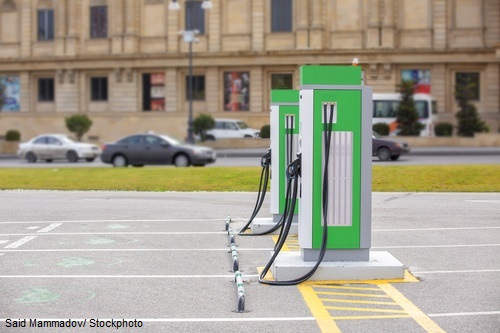
Under the agreement, Chaevi charging stations will be located on the premises or in the buildings of T-Station, Hankook’s tyre and car service company. This is to make it easier for customers to charge their EVs while visiting T-Station. The two companies also aim to become more customer-friendly for EV owners and actively promote their cooperation in the EV sector. Chaevi says it is one of the leading providers in South Korea with more than 4,000 charging stations and is currently expanding into foreign markets such as the US and Europe.
Hankook Tire is currently offering customers credit for using Chaevi charging stations as part of the launch of its new “Hankook iON” EV tyre range. Hankook’s tyre service T-Station offers online-to-offline services in more than 460 locations. It offers customers standardised maintenance and repair services with the latest equipment and trained professionals. In the online shop “T-Station.com”, customers can conveniently and easily purchase tyres from home and have them mounted in the workshops. Hankook describes itself as an innovation leader for EV tyres and underlines this by supplying tyres to the world’s largest EV manufacturers. Hankook was also the exclusive supplier and technical partner of the ABB FIA Formula E racing series in 2022.
Certifications for the Korean market are a complex hurdle and difficult to navigate due to different authorities and certification systems. With over 15 years of experience in the certification business, MPR International GmbH is your best point of contact for competent service when it comes to exporting to Korea. For example, KC Safety is relevant for electronics and household products, which are mostly intended for consumers, as well as products for children and babies.
Feel free to contact us any time if you need assistance or have any questions regarding Korean certifications like KC, KC EMC, KCs, KCs for explosion safety products or KGS factory registration.
Tel. Europe: +49-69-271 37 69 261 Tel. US: +1 773 654-2673
Email: info@korea-certification.com
For more information you can download our free brochure “Korea Certification Made Easy – The Booklet“.
SF Battery with 18-minute quick charge presented as global novelty
Back in 2018, the South Korean company SK On received an order from a global car manufacturer to develop an EV battery with fast charging within 18 minutes. In the course of development, this resulted in the so-called SF Battery (Super Fast Battery), which received the “Best of Innovation” award in the “Embedded Technologies” category at the CES technology trade fair held in January.
At the time of commissioning, charging times of 18 minutes for EV batteries were considered a challenge in the industry. In 2018, most car manufacturers demanded fast charging times of 30 minutes from their development departments or suppliers, while the realistic values were around 50 minutes. SK On was nevertheless confident of achieving the 18-minute target, as it had been researching batteries with fast-charging capabilities since 2016. “The spread of EVs depended on their range, speed and charging time,” said Park Ki-soo, SK On vice president and head of cell development. Battery production may involve, among other things, components and equipment that require KC certification to be used in the Korean market.
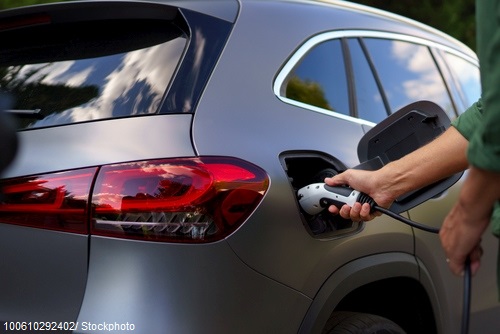
The key to fast charging is to reduce the anode resistance in lithium batteries. SK On has developed a special method for coating the anode and a new battery material for this purpose. SK On has also optimised the manufacturing process by using a new adhesive inside the cells called “SBR”. Afterwards, tests regarding the reliability and safety of the new SF battery were carried out by the car manufacturer who commissioned the battery. According to SK On, the SF battery can also tolerate more frequent fast charging and thus achieves a longer lifespan. In 2021, a newly launched EV was equipped with the SF battery and won numerous awards. At SK Group’s CES booth, the SF battery was one of the main attractions and attracted many visitors. SK On plans to launch an EV battery that can be charged in just 10 minutes in the coming years.
Feel free to contact us any time if you need assistance or have any questions regarding Korean certifications like KC, KC EMC, KCs, KCs for explosion safety products or KGS factory registration.
Tel. Europe: +49-69-271 37 69 261 Tel. US: +1 773 654-2673
Email: info@korea-certification.com
For more information you can download our free brochure “Korea Certification Made Easy – The Booklet“.
SK E&S presents hydrogen-powered drone at CES
SK Group’s natural gas division, SK E&S presented sustainable energy solutions at CES, which took place in January. At the US tech show in Las Vegas, SK E&S and partners showcased a fuel cell, hydrogen-powered drone and electric charging stations. Hydrogen is considered a green energy and a solution for achieving emission targets, as it does not emit pollutants when used. Hydrogen, or the fuel cell that runs on it, can be used to power forklifts, among other things. In the USA, SK E&S plans to market the GenDrive fuel cell and the GenFuel hydrogen dispenser together with the company Plug Power. SK E&S and its US subsidiary invested 1.6 billion US dollars in Plug Power last year. Machinery and components and products in this field often require KC certification to be approved for import and distribution in Korea.

SK E&S is also working on a hydrogen-powered drone that completed a 13-hour, 24-minute flight earlier this year, setting a record for unmanned aerial vehicles (UAVs) in its class. For propulsion, SK E&S uses liquid hydrogen, which has a higher energy density and stability than gaseous hydrogen. Drones with a tank for gaseous hydrogen can fly 26 times longer than drones with lithium-ion batteries and 6 times longer than drones with gaseous hydrogen as fuel. The Californian start-up EverCharge Inc., acquired by SK E&S, presented an EV charging solution for private users and the domestic sector called “COVE” at CES. At the show, SK E&S displayed diagrams for its CCUS technology, which can capture, store and use carbon dioxide from industrial processes. In Australia, SK E&S is pushing ahead with the development of a gas field where the CO₂ storage technology will be used. In May 2022, the South Koreans announced that they would invest in a project to capture and store up to 12 million tonnes of carbon dioxide currently emitted by 32 bioethanol plants in the United States Midwest.
Feel free to contact us any time if you need assistance or have any questions regarding Korean certifications like KC, KC EMC, KCs, KCs for explosion safety products or KGS factory registration.
Tel. Europe: +49-69-271 37 69 261 Tel. US: +1 773 654-2673
Email: info@korea-certification.com
For more information you can download our free brochure “Korea Certification Made Easy – The Booklet“.
SKC presented semiconductor and battery materials at CES
SK Group’s chemicals and materials business, SKC Co, unveiled a range of new products at CES. At the tech show, which took place in Las Vegas in January, the Koreans unveiled a semiconductor glass substrate, copper foil for batteries and bioplastics, among other products. The glass substrate, described by SKC as a “milestone in development” for semiconductor production, was presented to the public for the first time at CES. SKC is investing around 600 million US dollars in the construction of a glass substrate plant in the US state of Georgia. Glass substrate is the name given to a thin layer of glass on which computer chips are created. It requires less space than plastic or silicone-based substrates and enables the production of faster and more energy-efficient chips. SKC’s US offshoot Absolics Inc. will be the first company in the world to mass-produce this important starting material. Machines and equipment needed to manufacture products in these product categories generally require KC certification to be approved for import and sale in Korea.
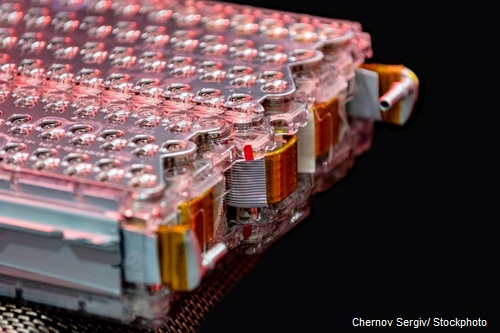
Furthermore, SKC showed a new type of copper foil for the production of EV batteries at CES. The SK Nexilis foil business is able to produce copper foil with a thickness of only 4 micrometres. This corresponds to one-thirtieth of the thickness of a human hair. The foil is produced at a width of 1.4 metres and a length of 77 kilometres. According to SKC, this would be the world’s thinnest, widest and longest copper foil ever produced. With materials for anodes made of silicone, the company will introduce another component for EV batteries next year, the silicone is supposed to improve the range and charging speed. SKC is investing in the British battery material manufacturer Nexeon for this purpose and will work with them in development in the future. At CES, SKC participated in a food truck event serving alternative foods such as plant-based milk and meat substitutes. SKC provided disposable tableware made from biodegradable plastics for the event.
Certifications for the Korean market are a complex hurdle and difficult to navigate due to different authorities and certification systems. With over 15 years of experience in the certification business, MPR International GmbH is your best point of contact for competent service when it comes to exporting to Korea. For example, KC Safety is relevant for electronics and household products, which are mostly intended for consumers, as well as products for children and babies.
Feel free to contact us any time if you need assistance or have any questions regarding Korean certifications like KC, KC EMC, KCs, KCs for explosion safety products or KGS factory registration.
Tel. Europe: +49-69-271 37 69 261 Tel. US: +1 773 654-2673
Email: info@korea-certification.com
For more information you can download our free brochure “Korea Certification Made Easy – The Booklet“.
Lotte Chemical joins hands with RWE and Mitsubishi to embark on an ammonia venture
Lotte Chemical has joined forces with RWE, a German energy giant, and Japan’s Mitsubishi Corp. to form a world-wide partnership focused on clean ammonia. This partnership aims to establish a comprehensive system for the production and distribution of clean ammonia across Asia, Europe, and the United States, with a joint effort by all partners involved. Machinery and equipment involved in the production of chemicals often requires KC or KCs certification in order to be approved for the Korean market.
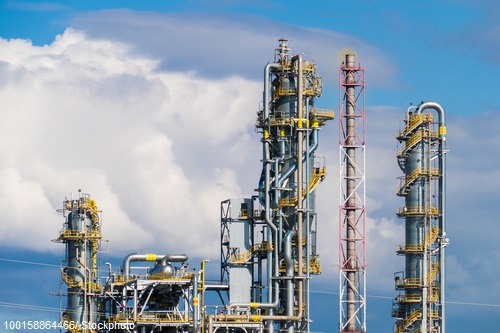
The first milestone in this venture was achieved on 7th February, when the three companies gathered at the Lotte World Tower in Seoul to officially sign a Joint Study Agreement (JSA).
The Joint Study Agreement (JSA) signed by the three companies has set the stage for a collaborative effort to launch production and export of clean ammonia (blue and green) at the Port of Corpus Christi in Texas, the largest energy export terminal in the United States. The project has ambitious goals, with plans to gradually produce a maximum of 10 million tons of clean ammonia, beginning in 2030. This ammonia will then be exported to Asia and Europe through shared shipment facilities.
The Corpus Christi area boasts a wealth of natural gas resources, making it a prime location to harness the power of renewable energy. Its abundant resources and advantageous location, along with its well-developed export infrastructure, including top-notch port facilities, make it an ideal spot for producing clean ammonia.
Feel free to contact us any time if you need assistance or have any questions regarding Korean certifications like KC, KC EMC, KCs, KCs for explosion safety products or KGS factory registration.
Tel. Europe: +49-69-271 37 69 261 Tel. US: +1 773 654-2673
Email: info@korea-certification.com
For more information you can download our free brochure “Korea Certification Made Easy – The Booklet“.
LG and Magna strengthen cooperation for autonomous driving solutions
LG Electronics and automotive supplier Magna announced in early January that they will strengthen their cooperation in the field of autonomous driving. The two companies are combining synergies of LG’s advanced in-car entertainment technology and Magna’s driver assistance systems. There are plans to develop a prototype for new systems and conduct a joint feasibility study. LG and Magna were also present at the CES electronics show in Las Vegas in January to make new business contacts with global car manufacturers. Parts and equipment used in the production of autonomous vehicles often require KCs certification to be approved for import and sale in Korea.
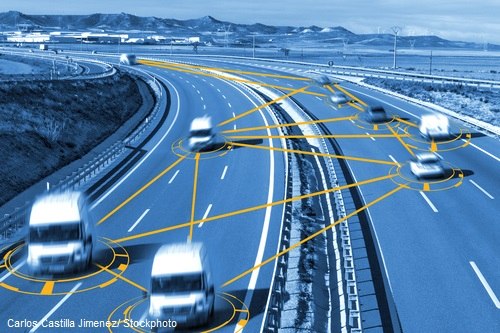
LG has been continuously developing its in-car entertainment systems in recent years and is the world’s number one with 23 per cent market share, according to market analyst Strategy Analytics. LG’s portfolio includes telematics, audio, video and navigation systems. The expanded collaboration between the two companies stems from the LG Magna e-Powertrain joint venture of 2021. After building plants in South Korea and China, LG Magna is now building a third automotive parts plant in Mexico at a cost of US$100 million.
KCs certification was introduced to ensure basic safety in the design and manufacture of hazardous machinery and protective equipment in hazardous workplaces in Korea. The aim is to protect the health and safety of workers by preventing accidents. We offer certification services for all product areas, including KC certification for consumer products and especially electronics, KC-EMV certification for electronic products and KCs certification for machinery, as well as KCs Ex for explosion-proof products. We are at your disposal for all questions regarding Korea certifications.
Feel free to contact us any time if you need assistance or have any questions regarding Korean certifications like KC, KC EMC, KCs, KCs for explosion safety products or KGS factory registration.
Tel. Europe: +49-69-271 37 69 261 Tel. US: +1 773 654-2673
Email: info@korea-certification.com
For more information you can download our free brochure “Korea Certification Made Easy – The Booklet“.



